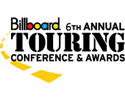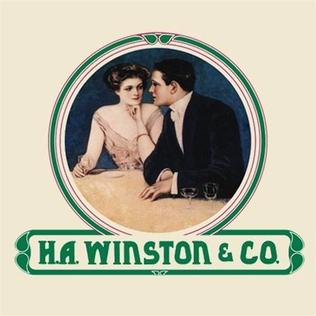
Bill Graham was a German-American impresario and rock concert promoter.

The Spectrum was an indoor arena in Philadelphia, Pennsylvania, United States. Opened in September 1967 as part of what is now known as the South Philadelphia Sports Complex, after several expansions of its seating capacity it accommodated 18,168 for basketball and 17,380 for ice hockey, arena football, indoor soccer, and box lacrosse.

SFX Hall, sometimes referred to as SFX Theatre or The SFX, was a theatre located on Upper Sherrard Street, in Dublin, Ireland. The venue was named after the St Francis Xavier Hall and constructed in 1957, although a theater had been located on that site since the middle of the 19th century. The theatre served as the national concert hall, a home to the RTÉ Symphony Orchestra, and on occasion, large-scale performances. The venue had a standing capacity of 1000 and hosted pop and rock music concerts until 2001 when the shows were moved to the Ambassador Theatre. In 1982, the Irish band U2 performed three shows at the SFX in support of their album War. At one time the Dublin Theater Festival was housed at the SFX.
Tour promoters are the individuals or companies responsible for organizing a live concert tour or special event performance. The tour promoter makes an offer of engagement to a particular artist, usually through the artist's agent or music manager. The promoter and agent then negotiate the live performance contract. The majority of live performance contracts are drawn up using the American Federation of Musicians (AFM) standard contract format known as the AFM Performance Agreement.
Live Nation is an American events promoter and venue operator based in Beverly Hills, California. Founded in 1996 by Robert F. X. Sillerman as SFX Entertainment, the company's business was built around consolidating concert promoters into a national entity to counter the oversized influence of ticket behemoth Ticketmaster. In 2000, the company was sold to Clear Channel Communications for $4.4 billion and operated as Clear Channel Entertainment until 2005, when it was spun off as Live Nation. In 2010, Live Nation merged with the ticketing firm Ticketmaster to form a larger conglomerate named Live Nation Entertainment.

The Tower Theater is a music venue in Upper Darby Township, Pennsylvania. It opened in 1927, and has been popular venue for music acts since the 1970s. In 2018, the Tower Theater was named one of the ten best live music venues in the United States by Rolling Stone magazine.
Franklin Music Hall is a concert venue in Philadelphia, Pennsylvania. It is in a converted building once part of the General Electric Switchgear Plant and opened in 1995. It has a capacity between 2,500 and 3,000 people. It is owned and operated by The Bowery Presents.
Frank Barsalona was an American talent agent and founder of the first major rock and roll booking agency in the United States.
A promoter works with event production and entertainment industries to promote their productions, including in music and sports. Promoters are individuals or organizations engaged in the business of marketing and promoting live, or pay-per-view and similar, events, such as music concerts, gigs, nightclub performances and raves; sports events; and festivals.
Stephen A. Love is an American eight times RIAA award winning Gold, Platinum and Multi platinum American entertainer, expert senior construction executive, country rock pioneer, multi-instrumentalist musician, lead singer, songwriter, producer, entertainment business promoter, CEO of the James Allen Promotions and Blue Jeans Music BMI. He lives near New York City and in Puerto Vallarta, Jalisco, Mexico.
Live Nation Entertainment is an American multinational entertainment company that was founded in 2010 following the merger of Live Nation and Ticketmaster. It promotes, operates and manages ticket sales for live entertainment internationally. It also owns and operates entertainment venues and manages the careers of music artists.

The Billboard Live Music Awards is an annual meeting sponsored by Billboard magazine that honors the top international live entertainment industry artists and professionals. Established in 2004, it has thus been described as "part industry conference, part awards show".
Pollstar is a trade publication for the concert and live music industry. The publication was purchased by Oak View Group, a venue consultancy founded by Tim Leiweke and Irving Azoff, in July 2017.

The Bowery Presents is the East Coast regional partner of AEG Live. It owns and operates multiple venues in New York City, Boston, Philadelphia, New Jersey, New Orleans, Virginia, and Maine. The capacities of the venues operated by The Bowery Presents range from 250 people to 20,000 people.
LiveStyle, Inc. is a Los Angeles-based live events conglomerate founded by media entrepreneur Robert F. X. Sillerman. The company was formed in June 2012 as SFX Entertainment—the new incarnation of Sillerman's previous company of the same name, which was sold to Clear Channel Communications in 2000 and later spun-off as Live Nation in 2005.
Michael Glenn Chugg is an Australian entrepreneur, businessman and concert tour promoter. As a promoter and manager he was a founder of Frontier Touring Company (1979–99) and Michael Chugg Entertainment (2000–present). On 8 June 1998, he was appointed a Member of the Order of Australia with the citation "for service to music and the performing arts, particularly in relation to the promotion of Australian artists and to fundraising for youth and children's charities". In 2010, he co-authored his autobiography, Hey, You in the Black T-Shirt: The Real Story of Touring the World's Biggest Acts, with journalist, Iain Shedden. In March 2014 on the 50th anniversary of his start as a promoter, Denis Handlin opined "Chuggy is noisy, wild, cantankerous, the oldest teenager I know and very often a nightmare to deal with. But somehow we all love him because he lives and sweats the business with 100 per cent persistence and passion". At the ARIA Music Awards of 2019 Chugg received the ARIA Industry Icon Award.
A radius clause is a form of non-compete clause used in the live music industry, in which a tour promoter stipulates that a performer, for a certain length of time prior to or following an appearance at a concert or festival, must not hold concerts at other locations within a certain radius of the city where they are to perform. In essence, it gives the promoter a form of territorial exclusivity, ensuring that the performer does not book concerts with competing promoters and venues in nearby areas, which can undermine ticket sales for their main event.
CTS Eventim is a German company in the leisure-events market, with ticketing and live entertainment, headquartered in Bremen. It is one of the 50 companies comprising the MDAX index, and one of the 40th to 90th largest companies in Germany by market capitalisation.

H.A. Winston & Co., a.k.a. Winstons was a chain of restaurants centered in the Philadelphia, Pennsylvania, area in the 1970s and 1980s. The chain shut its last restaurant on July 14, 1992.






